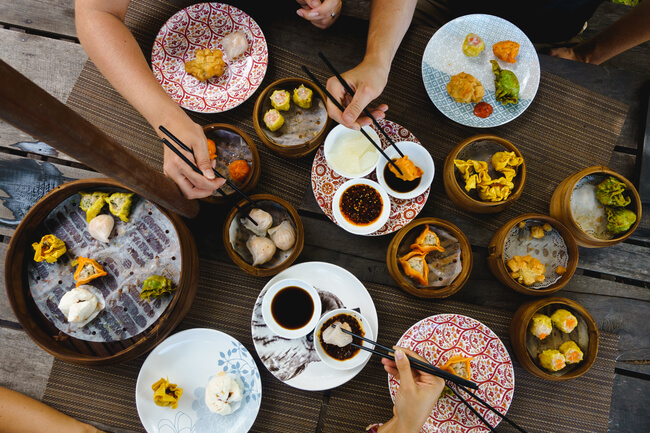20 Free Pieces Of Advice To Explore China Rich Food History
Top 10 Tips For Exploring Regional Cuisines In China1. Be familiar with the Eight Culinary customsTip: Get familiar with the eight main Chinese dishes : Sichuan Cantonese Shandong Jiangsu Fujian Hunan Anhui Zhejiang. Each is distinct in its dishes, flavors and cooking techniques.Pro: Helps you plan your dining experiences in accordance with your tastes.Con: It can be difficult trying to remember the finer points of each cuisine.
2. Take advantage of local specialtiesTip: Try signature dishes of the region you're visiting, like Peking Duck in Beijing, Xiaolongbao in Shanghai, or Hot Pot in Chengdu.Pro: It provides an authentic and culturally rich dining atmosphere.Con: Can restrict your ability to try other regional cuisines you are visiting.
3. Be aware of the local flavorsTips: Sichuan dishes are spicy and numbing. Cantonese foods are light and fresh. Jiangsu food is sweet and delicate. You should choose dishes that suit your taste and spice tolerance.It will help you not order food items that might not be the food you would prefer.Con: Certain flavor profiles require some experimentation in order to achieve.
4. Explore Street FoodTake a bite of street food in all cities. For example In Beijing you can find Jianbing, which are savory crepes. In Xi'an there is Roujiamo that is Chinese burgers. Be adventurous and sample local food items.Pros The benefits of street food are cheap, easy to prepare, delicious, and a great way to see local culture.Con: Hygiene may be a concern sometimes; pick vendors with a high turnover.
5. Learn Basic Dining EtiquetteTips: Be aware of Chinese eating habits, for example sharing food with your family in a traditional family style and not sticking the chopsticks straight in rice.Pro: Respects local customs and traditions, which enhances the experience of dining.Con: It may take time to adjust to new etiquette.
6. Ask for recommendations from locals.Locals are usually aware of which restaurants or dishes are best in their area. Don't be afraid to ask for advice.It helps you avoid tourist traps but also uncover hidden gems.Con: Language barriers can hinder communication.
7. Be Open-Minded to Unfamiliar IngredientsMake use of your imagination to find unusual ingredients in regional cuisines. Explore new food items.Pro: Expands your palate and increases your appreciation for Chinese cuisine.Con: Some meals may not match your tastes or dietary needs.
8. Create dietary restrictions that are compatible withTips: Learn some phrases in Mandarin to convey allergies or preferences, like "Wo bu chi rou" (I don't eat meat).Pro: It provides a safer dining experience that is customized to your preferences.Cons: Certain cuisines are not available as options for people with certain diet restrictions.
9. Mix Drinks and Foods from a RegionallyTip: Try local beverages like Shaoxing wine in Zhejiang or tea from Fujian or baijiu in northern China.Pro: Increases the depth of food and complements the food.Con: Strong flavors such as baijiu might not be appealing to everyone.
10. Avoid OverorderingTip: Chinese food is typically served family-style So be cautious when ordering. You can also order more in case you need to.Cons: Food waste can be avoided and a variety of dishes can be sampled.Cons: It could be tempting to buy too much because of the range of choices that is available.
Explore the cuisines of regional regions in China: BenefitsEnjoy a wide variety of tastes, techniques and ingredients.Cultural Insight: Growing your understanding of regional traditions and identities.Affordable: Many of the local dishes and snacks are priced to be affordable.Experiences to Remember: Tasting famous dishes from the region where they came from creates unforgettable memories.Pros and Cons of Exploring Chinese Regional CuisineHygiene Issues. Some street foods or restaurants aren't likely to be up to international standards for cleanliness.Language Barriers - Menus, explanations, and ordering may be only in Mandarin.Certain flavorings or textures can be difficult for certain people.Dietary limitations: In certain areas, vegetarians and vegans and those with food allergies may find it difficult.By following these guidelines and being adventurous will allow you to experience the wide variety of local Chinese food, while facing any obstacles. View the most popular China famous food destinations for website recommendations including tasty delights from China, the flavors of Chinese cuisine, a taste of China best local foods, authentic tastes of China, Chinese cuisine you need to try, authentic Chinese culinary adventures, a culinary journey through China, a tour of China regional cuisine, a tour of China regional cuisine, explore the best local eats in China and more.

Tips To Tipping The Top 10 Practices In China
1. Be aware that tipping is not CustomaryTip - Tipping in China isn't commonplace particularly in small restaurants and in local eateries.Benefits: You will save money and follow cultural practices.Con: It might be a bit odd for those who are used to tipping their countries of origin.
2. Look up Service ChargesTipping - High-end restaurants hotels, restaurants and other establishments often include service fees (10-15 10%) as a part of the cost. Tipping is not necessary.Pro: You don't have to include any additional information or calculate.Con: Occasionally, charges for services aren't always clearly stated.
3. It is only appropriate to tip when AppropriateIn areas that are awash with tourists International hotels and tour guides might expect tips, particularly from hotel staff, drivers or tour guides.Pro: A simple gesture of appreciation could show your appreciation for the exceptional service you received.Cons: There could be doubt about the properness of tipping.
4. Give Tips in a discreet mannerIf you want to give a tip, do it in a subtle manner in order to avoid making the recipient feel uncomfortable.Pro: Prevents unwelcome attention or embarrassment.Con: Some people might refuse to tip the iceberg, leading to awkward situations.
5. Use Cash for TippingTips: If tipping is appropriate, use cash, not adding it to your bill, because many payment systems in China don't have an option to tip.Cash is widely accepted and easy to use.Con: Needs to carry small denominations, which might be inconvenient.
6. It is also possible to give a tip to businesses that cater for touristsTips: In places frequented by Western tourists, tipping might be expected or appreciated for example, at international restaurants, or during guided tours.Pro: Aligns well with expectations of Western service providers.Con: encourages a gradual movement toward tipping, despite that it's not necessary.
7. Avoid Tipping Taxi DriversTipping is rare. Round up the cost in case you have to.Pro: Shows you're willing to follow local customs.Con: In places other that tourist areas, rounding up may be misunderstood to mean a tip.
8. Tips for Tour GuidesTipping is commonplace for private and group excursions in cities like Beijing or Shanghai. It is typical to give the guide or driver a small amount, such as Y=50 - Y=100.Pro: Rewards good service.Cons: Expectations for future travellers to tip more.
9. Avoid Over-TippingTips: If you choose to leave a tip, a small amount (5-10% or less) is adequate. The idea of a large tip is that it's excessive or unproductive.Pro: It stops you from spending too much or offending your locals.Con: If used to tipping generously, holding back can feel uncomfortable.
10. Research Ahead of TimeIt is a good idea to learn the specifics of the tipping customs in a particular region or establishment prior arriving. It is possible that certain provinces or businesses catering to international customers have different expectations.Pro: Aids you to adapt to local customs and prevent confusions.Cons: You must take the time to research each location or establishment.
The benefits of tipping in ChinaCost Savings: Not having to tip can mean lower overall expenses.Cultural Adaptation: Incorporates the traditional ways of life, encouraging respect and integration.Simplicity Eliminates the need to carry cash around or perform calculations.Focus on Service - Recommends service providers not to tip, but rather to focus on the quality of their services.Cons of Tipping Practices in ChinaTourists might be unfamiliar with the culture of tipping.Unfortunate Situations: Giving an improper tip could result in discomfort or confusion.Tourism has triggered changes in expectations. In certain areas where tipping is the norm, it's a common.Inadequately than Not Thanks: Tipping is a way for some travelers to show their gratitude. The absence of tipping could make travelers feel a little deprived.If you follow these guidelines to navigate China's tipping rules without fear, and ensure cultural respect and a pleasant dining experience. Check out the most popular explore local Chinese cuisine for more tips including discover the tastes of China cities, Chinese food culture guide, a guide to China food scene, the ultimate guide to Chinese cuisine, from street food to fine dining in China, Chinese food you must try, authentic Chinese culinary adventures, Chinese cuisine you need to try, a culinary journey through China, discover China culinary delights and more.
